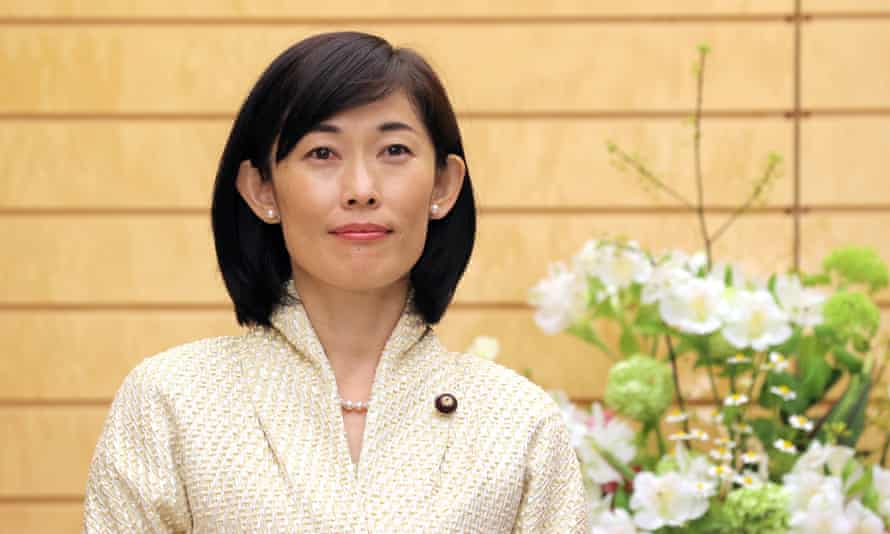Tamayo Marukawa among 50 conservative MPs to urge local body not to support policy change

Japan’s minister for women’s empowerment and gender equality, Tamayo Marukawa, is among a group of conservative MPs who have opposed a legal change that would allow women to keep their birth name after marriage.
Japan is one of only a few industrialised countries where it is illegal for married couples to have different surnames. The country’s civil code, introduced in 1896, requires married couples to share a surname and while it does not stipulate which name they should adopt, in practice women take their husband’s name in 96% of cases.
Pressure to change the law has built in recent years. In 2015 women’s rights activists were dealt a blow when the supreme court ruled that the requirement to share surnames did not violate the constitution.
Marukawa, who recently took on the women’s empowerment portfolio after her predecessor, Seiko Hashimoto, was appointed head of the Tokyo 2020 Olympics organising committee, said her opposition to allowing couples to use different surnames would not affect her commitment to women’s rights.
Marukawa, who doubles as the Olympics minister, was among 50 upper and lower house members of the ruling Liberal Democratic party (LDP) who wrote to their colleagues on the Saitama prefectural assembly urging them to oppose the adoption of a written opinion favouring a policy change.
Written opinions adopted at the local level are often seen as a way of promoting debate in parliament.
The supreme court ruling in 2015 came four years after a group of women launched a legal challenge seeking damages for the emotional distress and inconvenience of having to take their husband’s name.
Conservative politicians and commentators have argued that allowing couples to have different surnames would harm the traditional family unit.
The law reflects the traditional view that marriages are unions between families, not individuals. During the Meiji era (1868-1912), when the law was introduced, it was common for a woman to leave her family to become part of her husband’s family.
Like many Japanese women, Marukawa, who is married to the LDP MP Taku Otsuka, continues to use her birth name at work and her legal, married surname in official documents.
This week she confirmed she had signed the petition, but described her opposition to a legal change as “personal opinion” that would not affect her work as a minister.
“My role is to help create an environment where the public can deepen their discussions on the issue,” she said in response to a question from an opposition MP.
The prime minister, Yoshihide Suga, offered hope to campaigners when he suggested late last year that he was in favour of a system that permitted the use of dual surnames.
But he did not mention it in his first major policy speech, and his government did not commit itself to a change in the law when it approved its gender equality promotion policy last December. That omission came after fierce opposition from conservative MPs.
“Their action reflects a disturbing lack of awareness of human rights, and represents grossly anachronistic thinking,” the liberal Asahi Shimbun newspaper said in an editorial.
The UN committee on the elimination of discrimination against women has recommended a revision to the law, saying it discriminates against women, while polls suggest the government is out of step with public opinion.
In a survey conducted last October, 70.6% of respondents said they did not mind if married couples used different surnames, with 14.4% supporting the current arrangements.
• This article was amended on 26 February 2021 to change “maiden name” to “birth name” in accordance with Guardian style.
